Words of Wisdom - Shastra
& Shastrakaras speak
For Books and shastra downloads see Main Index, under
Books:
Om Namo Bhagavate Vasudevaya
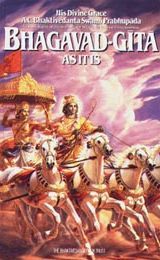

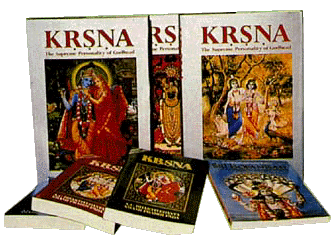
The Complete Works of Srila Prabhupada
All the books, the letters and conversations at your
fingertips


All Srila Prabhupada's books and more on one disk
http://www.vedabase.com





Srila Prabhupada's Audio lectures to listen to on-line:
http://www.hare-krishna.org/srila-prabhupada-lectures.htm
Listen to Srila A.C. Bhaktivedanta Swami Prabhupada on-line
- all 900 of his lectures are available HERE:
http://www.prabhupadavani.org/
Srimad Bhagavatam - the entire lecture series listen and
read along on-line - Narrated by Amala Bhakta dasa:
http://www.prabhupadavani.org/SB_index.html

The new enhanced Prabhupada MP3 series
http://www.prabhupada.com/store/store.php?page=product.php&id=MP3AUDIOLIB








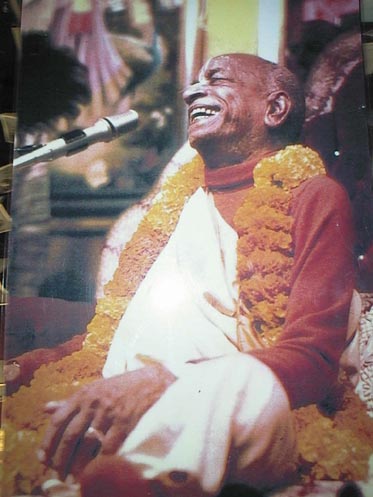
Visit "Prabhupada Connect" for all manner of Prabhupad
Nectar:
http://www.prabhupadaconnect.com/Index.html
Srila Prabhupada's Final Lesson Video - Downloadable and
viewing on-line
http://users.iskconludhiana.com/images/thumbnails.php?album=21


All Srila Prabhupada's original books
available for sale here.

Download all the Hare Krsna teachings which includes
all Vaisnava and
Vedic concepts by visiting one of the sites listed at
the following address.
http://www.geocities.com/suci123/bookdownloadsites1.html
The Bhaktivedanta Book Trust
Srila Prabhupad Memorial Library
http://www.krishna.com/main.php?id=33


33 Books Online Including Srimad Bhagavatam!
http://www.geocities.com/freeprabhupadabooks
The compressed "self extracting" file mentioned is now currently
available for download
http://www.krsnaconsciousness.org/Gauranga/Folio/BhaktivedantaVedabase_DOS.exe

Download or Listen to Prabhupad Bhajans HERE:
http://www.prabhupadavani.org/web/text/Bhajans.html


On-line 1972 McMillan edition - Bhagavad Gita As It Is:
http://www.asitis.com/

Bhagavad Gita AS IT IS on-line through the Tirupathi
Balaji site:
http://www.bhagavad-gita.us/

Bhagavad Gita Study guide on-line book:
http://chantandbehappy.com/gita/studyguide/StudyGuide-main.htm
Bhagavad Gita Study guides by numerous Iskcon devotees
- FREE downloads:
http://www.veda.harekrsna.cz/library/#3

All the Scriptures you'd ever need 4 FREE
http://www.hknet.org.nz/index-books.htm
http://www.hknet.org.nz/DDB.htm
http://www.hknet.org.nz/DDB2.html
last updated 4th August 2003


Srimad Bhagavad Gita AS
IT IS
Bhagavad Gita: Chapter
6 - Dhyana-yoga
TEXT 8
jnana-vijnana-trptatma
kuta-stho vijitendriyah
yukta ity ucyate yogi
sama-lostrasma-kancanah
WORD FOR WORD
jnana--by acquired knowledge; vijnana--and realized knowledge;
trpta--satisfied; atma--a living entity; kuta-sthah--spiritually situated;
vijita-indriyah--sensually controlled; yuktah--competent for self-realization;
iti--thus; ucyate--is said; yogi--a mystic; sama--equipoised; lostra--pebbles;
asma--stone; kancanah--gold.
TRANSLATION
A person is said to be established in self-realization
and is called a yogi [or mystic] when he is fully satisfied by virtue of
acquired knowledge and realization. Such a person is situated in transcendence
and is self-controlled. He sees everything--whether it be pebbles, stones
or gold--as the same.
PURPORT by HDG Srila A.C. Bhaktivedanta Swami Prabhupad:
Book knowledge without realization of the Supreme Truth
is useless. This is stated as follows:
atah sri-krsna-namadi
na bhaved grahyam indriyaih
sevonmukhe hi jihvadau
svayam eva sphuraty adah
"No one can understand the transcendental nature of the
name, form, quality and pastimes of Sri Krsna through his materially contaminated
senses. Only when one becomes spiritually saturated by transcendental service
to the Lord are the transcendental name, form, quality and pastimes of
the Lord revealed to him." (Bhakti rasamrta-sindhu 1.2.234)
This Bhagavad-gita is the science of Krsna consciousness.
No one can become Krsna conscious simply by mundane scholarship. One must
be fortunate enough to associate with a person who is in pure consciousness.
A Krsna conscious person has realized knowledge, by the grace of Krsna,
because he is satisfied with pure devotional service. By realized knowledge,
one becomes perfect. By transcendental knowledge one can remain steady
in his convictions, but by mere academic knowledge one can be easily deluded
and confused by apparent contradictions. It is the realized soul who is
actually self-controlled, because he is surrendered to Krsna. He is transcendental
because he has nothing to do with mundane scholarship. For him mundane
scholarship and mental speculation, which may be as good as gold to others,
are of no greater value than pebbles or stones.
His Divine Grace A.C. Bhaktivedanta Swami Prabhupada
Copyright 1983 The Bhaktivedanta Book Trust International. Used with
permission.

Bhagavad Gita As It Is - http://www.asitis.com/
Bhaktivedanta Vedabase - Bhagavad Gita on-line http://bhagavadgitaasitis.com/
Bhaktivedanta VedaBase: Bhagavad-gita As It Is http://vedabase.net/bg/en
Bhagavad Gita Multi Media Web-version http://chantandbehappy.com/gita/
Listen to Bhagavad Gita on line - http://www.Gitamrta.org
View our Bhagavad Gita Overview:
http://www.hknet.org.nz/BG.html
Archive: http://www.cs.rice.edu/~vivek/btg/archive/
Home Page: http://www.cs.rice.edu/~vivek/btg/
Join Bhagavad Gita eGroups HERE
mailto:bhagavad_gita-owner@egroups.com


Prabhupada Uvacha:
(here's some nectar, sometimes it comes in the form of Srutakirti prabhu's
diary, other times from Govinda dasi's diary, Hari Sauri prabhu's Transcendental
Diary, or sometimes from a letter, or other related source, but still nectar...)
Jesus Christ participated in Jagannatha Ratha
Yatra
In his lectures, Prabhupada would always substantiate
his statements by quoting from scripture. Unlike other religions, whose
followers depended mainly on faith and sentiment, ours rested on a solid
philosophy. The preachers would have to be fully equipped to logically
present the perfect Vedic conclusions to convince the doubtful American
public that we were not just mindless zealots who sang and danced and begged
donations. Inspired by Prabhupada's example, we would engage in mock debates,
taking various opposing views representing Christianity, impersonalism,
and any other philosophy we came into contact with during our day's preaching,
and in such debates the Krsna conscious philosophy would always emerge
victorious. We were going out eight hours a day, challenging everyone that
Krsna consciousness is superior to all other paths. We wanted to impress
people that our movement was based on the authority of the timeless Vedic
scriptures and not upon the concoctions of some charismatic cult leader-we
were determined not to be lumped in with the other Eastern-oriented groups
which were becoming popular. To successfully defend our Krsna consciousness
movement, each of the devotees was induced to make a scholarly study of
all of Srila Prabhupada's books, and after one of the women made book bags
so that each preacher could carry his personal copy of Bhagavad-gita with
him on sankirtana, it was not uncommon to see devotees on the street with
Gitas in hand, quoting verses to interested inquirers.
Often, while preaching, we were asked to state
our position regarding Lord Jesus Christ. Had we accepted Jesus as the
true Savior? they wanted to know. If the answer was no, then we were lumped
in with all the other devil worshipers who were going to burn in the eternal
hell. Of course we accepted Jesus, but not exactly in the way the Christians
did. Previously I had come across a book entitled The Aquarian Gospel of
Jesus Christ, which de-scribed the activities of Jesus between his twelfth
and thirtieth years, an important portion of his life noticeably omitted
from the New Testament. Because the book described how Jesus had received
the major part of his religious training in India, I thought it worthwhile
to bring it to Srila Prabhupada's attention, and out of curiosity, Srila
Prabhupada had me purchase a copy. For a number of afternoons during his
last visit to Los Angeles, he would hear with interest as I read the narration
of how Jesus learned the art of hearing from the yogis in Benares, traveled
to various holy places, and even participated in the Ratha-yatra festival
in Jagannatha Puri. The author, however, stated that Jesus did not approve
of Deity worship, considering Lord Jagannatha to be an idol. Though much
of the book seemed to substantiate our Krsna consciousness tradition, this
point made Prabhupada skeptical. What was the author's parampara? Prabhupada
challenged. I explained that the author supposedly obtained his information
from the "akashic records." Prabhupada was not satisfied. He also questioned
why so much attention was given to Jesus' healing the physical illnesses
of the people. A pure devotee is not very much concerned to treat the bodily
diseases, but teaches his followers how to transcend the bodily condition
altogether by practicing devotional service. Although a pure devotee is
empowered by Krsna, and as such is the most powerful of yogis, he does
not take advantage of this by performing miracles, but prefers to convince
his disciples through instructions and by his personal example of devotional
service. In the final analysis, Prabhupada's conclusion was that since
the book's authenticity could not be established, it was not therefore
very important. Nevertheless, while giving his inauguration address at
the Ratha-yatra festival in San Francisco, he described how two thousand
years earlier Lord Jesus Christ had also participated in a similar festival.
Since the issue of Jesus repeatedly came up when
we preached, I requested Prabhupada to clarify to what extent we should
explain Jesus in the context of our philosophy. Prabhupada's advice to
me was that while accepting Jesus as a great devotee and a son of God,
it was better that we avoid any detailed discussions about other religions.
In a purport of the Caitanya-caritamrta, Srila Prabhupada described the
teachings of these religions as yavana-sastra, the scriptures of the meat-eaters.
Usually, the authority of their teachings was not clearly defined, and
neither had enough care been exercised in preserving their "original" versions.
As a result there was widespread confusion among the leaders of various
religious disciplines about the best way to interpret the teachings they
had respectively inherited. Fortunately, we had no such problems. Even
after five thousand years, the Krsna conscious philosophy remained perfectly
clear and intact due to the process of unbroken disciplic succession. The
vedas were the source of all knowledge, and Srimad-Bhagavatam the postgraduate
religious treatise. Therefore, our discussing in detail these other religious
traditions had little value, as much as lighting a candle in broad daylight
was of no use. Occasionally we might cite some stray extract, but just
to support our own views, as Prabhupada had done during his Ratha-yatra
speech.
- From the "Servant of the Servant" by HH Tamala
Krsna Goswami
To receive little snippets of nectar like this on a daily basis subscribe
HERE: or If you want to introduce anyone else in reading Srila Prabhupada
Nectars, please send their eMail addresses to mailto:krpamaya_gauranga@hotmail.com
Please Chant:
 Hare
Krishna Hare Krishna Krishna Krishna Hare Hare
Hare
Krishna Hare Krishna Krishna Krishna Hare Hare
 Hare
Rama Hare Rama Rama Rama Hare Hare
Hare
Rama Hare Rama Rama Rama Hare Hare
...................and be Happy

Listen to Srila Prabhupad on-line
....a different lecture, morning walk, conversation or
class daily.
"One Should Spend All Energy"
>>> Ref. VedaBase => Bhagavad-gita 2.49-51 -- New York, April 5, 1966
Listen to the entire lecture on-line:
http://prabhupadaradio.com/M3U/Gita/m3u/GT104.m3u
Prabhupada: Now Lord Sri Krsna is just trying to place
Arjuna in the platform of working on pure consciousness. The... We have
already discussed for so many days that we are not this dull body, but
we are consciousness. Now, some way or other, we are in contact with this
matter. Therefore our freedom is checked. As spiritual beings, we are free,
free to act, free to have anything, pure, no contamination, no disease,
no birth, no death, no old age, and besides that, we have got many, many
other qualifications in our spiritual life. So unfortunately, because we
are in contact with this matter, we are hampered in so many ways. This
we should understand, and this is the opportunity; this human life is the
only opportunity. If we miss this opportunity, then it may be that in our
next life we may not have again this nice, civilized human form of life
according to our karma. But one thing is sure. You'll be glad to hear that
once begun, this process of spiritual realization, one is guaranteed to
have next life as human being. You'll find in the Bhagavad-gita that sucinam
srimatam gehe yoga-bhrasto 'bhijayate [Bg. 6.41]. You'll find in course
of this discussion with Arjuna and Krsna when Krsna will describe about
the yoga system, how to act it. This is also yoga system, yoga-sthah kuru
karmani. This is karma-yoga. This is karma-yoga.
So any yoga, either karma-yoga or dhyana-yoga or jnana-yoga,
any system of yoga, once begun in this life, that will continue. That will
continue. Yoga-sthah kuru karmani. The Bhagavata says, Srimad-Bhagavata
says, tyaktva sva-dharmam caranambujam harer bhajann apakvo 'tha patet
tato yadi yatra kva vabhadram abhud amusya kim ko vartha aptah, aptah abhajatam
sva-dharmatah [SB 1.5.17]. This is speech by Narada to his disciple, Srila
Vyasadeva, that "You should try, people, to connect them in spiritual life,
in conducting spiritual life. It doesn't matter even if he fails to complete
the course; still, he's not loser. Still, he's not loser. He..." The whole
system of Vedic knowledge, especially the Krsna philosophy... Krsna philosophy
-- the whole philosophy. Vedic philosophy means Krsna philosophy. Vedais
ca sarvair aham eva vedyam [Bg. 15.15]. The all Vedic knowledge, all Vedic
wisdom means to understand Krsna philosophy. That's all. Nothing else.
The Krsna philosophy in different ways all over the world, they have been
described according to the time, place and people, but you must know the
whole thing is Krsna philosophy. Krsna philosophy is... When we speak of
Krsna, you don't take this word, Sanskrit word, Krsna, in a sectarian meaning.
Krsna means the Supreme, the highest pleasure, highest pleasure.
So now, yoga-sthah. In the previous verse we have been
advised to work, continue work, being situated in yoga. And in the next
sloka Lord Krsna says,
continued.......................
Listen to the entire lecture on-line:
http://prabhupadaradio.com/M3U/Gita/m3u/GT104.m3u
or receive in mailbox and Subscribe HERE:
mailto:lectures-subscribe@prabhupadavani.org
Sravanam kirtanam at:
http://www.PrabhupadaVani.org
© 2001 The Bhaktivedanta Book Trust International. Used with permission.


SRILA PRABHUPADA'S QUOTE OF THE DAY
Although a physical body is not
present, the vibration should be
accepted as the presence of
the spiritual master. Vibration--what we
have heard from the spiritual
master--that is living.
Lecture, Los Angeles 1969
Sign-up to receive these quote HERE:
mailto:haribol@pacific.net.sg

Bhaktivedanta Vedabase Network ...
http://vedabase.net/


The Scientific - Mathematical
Proof for God's existence:
http://geocities.com/sector114

http://robot-hosting.com/php/login_nicholas.html
user name = guest
password = guest
(Collection of philosophical and mathematical proofs
for existence of God can be found in this site.)

Scientifically Philosophical Books for the layman
 ...
...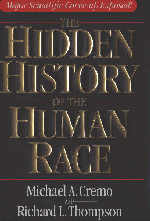 ...
...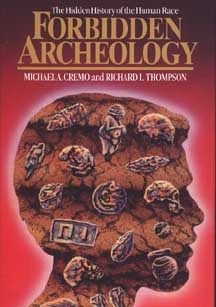 ...
...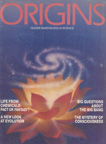
Click on any of these books to read more about them and where to get
a copy
or contact your local temple for purchases
sample of Life
comes from Life HERE.pdf

Lotus Imprints - Preserving Prabhupada's Legacy - The
Publishing House of Hari Sauri dasa
http://www.lotusimprints.com/

Quotes from Shastra - scriptures
View using Balaram font



 The
Month of Karttika
The
Month of Karttika
8th October to 5th November 2006
All about the Month of Karttik HERE
and how to observe
Kartik Vrata & Festivals
of Kartika
Kartika mahatmya from 16th chapter Hari
Bhakti Vilasa - see below
All manner of
inspiring nectar regarding Kartika vrat - what to do and the benefits thereof........
View this .pdf file "The Glories
of Karttika"

The following Sections are from Sri Gaudiya Kantahara
Two Kinds of Varëäçrama
Divine and Demoniac
14.1
dvau bhüta-sargau loke'sminn
daiva äsura eva ca
viñëu-bhaktaù
småto daiva äsuras-tada-viparyayaù
There are two classes of men
in the created world the demoniac and the godly. The devotees of Lord Viñëu
are the godly. All opposed are demons. (Padma Puräëa)
Divine Varëàïrama
14.2
varëäçramäcäravatä
puruñeëa paraù pumän
viñëurärädhyate
panthä nänyat tat-toña-kärakaù
The Supreme Person, Lord Viñëu,
is worshiped by a person who is engaged in the proper execution of prescribed
duties in the system of varëa and äçrama. There is no
other way to satisfy the Supreme Lord. (Viñëu Puräëa
3.8.9)
The Demoniac Social System
14.3
asatyam apratiñöhaà
te jagad ähur anéçvaram
aparaspara-sambhütaà
kim anyat käma-haitukam
The demoniac say that this
world is unreal, that there is no foundation and that there is no God in
control. It is produced of sex desire, and has no cause other than lust.
(Bhagavad-gétä 16.8)
The Character of the Followers of
Demoniac Society
14.4
asau mayä hataù çatrur
haniñye cäparän api
éçvaro 'ham ahaà
bhogé siddho 'haà balavän sukhé
The demoniac think, "He is
my enemy, and I have killed him; and my other enemy will also be killed.
I am the Lord of everything, I am the enjoyer, I am perfect, powerful,
and happy. (Bhagavad-gétä 16.14)
The Future of the Followers of Demoniac
Society
14.5
tän ahaà dviñataù
krürän saàsäreñu narädhamän
kñipämy ajasram açubhän
äsuréñv eva yoniñu
Those who are envious and mischievous,
who are the lowest among men, are cast by Me into the ocean of material
existence, into various demoniac species of life. (Bhagavad-gétä
16.19)
14.6
äsuréà yonim
äpannä müòhä janmani janmani
mäm apräpyaiva kaunteya
tato yänty adhamäà gatim
Attaining repeated birth and
death amongst the species of demoniac life, such persons can never approach
Me. Gradually they sink to the most abominable type of existence. (Bhagavad-gétä
16.20)
The Birth, Family, and Knowledge
of the Followers of Demoniac Society
is Useless
14.7
dhig janma nas tri-våd yat
tad dhig vrataà dhig bahu-jïatäm
dhik kulaà dhik kriyä-däkñyaà
vimukhä ye tv adhokñaje
To hell with our birth as brähmaëas!
To hell with our learning of Vedic literature! To hell with our performing
sacrifice and observing the rules and regulations of scripture! To hell
with our families! To hell with our expert service in performing the rituals
exactly according to the description of scripture! To hell with it all,
for as result of these things we have become opposed to loving the blessed
Supreme Lord, who is beyond the speculation of our body, mind, and senses.
(Bhäg. 10.23.40)
The Characteristics of Each Varëa
14.8
çamo damas tapaù çaucaà
santoñaù kñäntir ärjavam
jïänaà dayäcyutätmatvaà
satyaà ca brahma-lakñaëam
The symptoms of a brähmaëa
are control of the mind, control of the senses, austerity, penance, cleanliness,
satisfaction, forgiveness, simplicity, knowledge, mercy, truthfulness,
and complete surrender to the Supreme Lord. (Bhäg. 7.11.21)
14.9
çauryaà véryaà
dhåtis tejas tyägaç cätmajayaù kñamä
brahmaëyatä prasädaç
ca satyaà ca kñatra-lakñaëam
To be influential in battle,
unconquerable, patient, challenging and charitable, to control the bodily
necessities, to be forgiving, to be attached to the brahminical nature,
and to be always jolly and truthful are the symptoms of a kñatriya.
(Bhäg. 7.11.22)
14.10
deva-gurv-acyute bhaktis tri-varga-paripoñaëam
ästikyam udyamo nityaà
naipuëyaà vaiçya-lakñaëam
Being always devoted to the
demigods, the spiritual master and the Supreme Lord, Viñëu;
endeavoring for advancement in religious principles, economic development
and sense gratification (dharma, artha, and käma), believing in the
words of the spiritual master and scripture, and always endeavoring with
expertise in earning money are the symptoms of a vaiçya. (Bhäg.
7.11.23)
14.11
çüdrasya sannatiù
çaucaà sevä sväminy amäyayä
amantra-yajïo hy asteyaà
satyaà go-vipra-rakñaëam
Offering obeisances to the
higher sections of society, being always very clean, being free from duplicity,
serving one's master, performing sacrifices without uttering mantras, not
stealing, always speaking the truth and giving all protection to the cows
and brähmaëas are the symptom of a çüdra. (Bhäg.
7.11.24)
Bhagavad-gétä on Varëäñrama
14.12
brähmaëa-kñatriya-viçäà
çüdräëäà ca parantapa
karmäëi pravibhaktäni
svabhäva-prabhavair guëaiù
Brähmaëas, kñatriyas,
vaiçyas, and çüdras are distinguished by their qualities
of work, O chastiser of the enemy, in accordance with the modes of nature.
(Bhagavad-gétä 18.41)
Qualities of Brähmaëas
14.13
çamo damas tapaù çaucaà
kñäntir ärjavam eva ca
jïänaà vijïänam
ästikyaà brahma-karma svabhäva-jam
Peacefulness, self-control,
austerity, purity, tolerance, honesty, wisdom, knowledge, and religiousness
these are the qualities by which the brähmaëas work. (Bhagavad-gétä
18.42)
Qualities of Kñatriyas
14.14
çauryaà tejo dhåtir
däkñyaà yuddhe cäpy apaläyanam
dänam éçvara-bhävaç
ca kñätraà karma svabhäva-jam
Heroism, power, determination,
resourcefulness, courage in battle, generosity, and leadership are the
qualities of work for the kñatriyas. (Bhagavat-gétä
18.43)
Qualities of Vaiçyas and Çüdras
14.15
kåñi-go-rakñya-väëijyaà
vaiçya-karma svabhäva-jam
paricaryätmakaà karma
çüdrasyäpi svabhäva-jam
Farming, cow protection, and
business, are the qualities of work for the vaiçyas, and for the
çüdras there is labor and service to others. (Bhagavat-gétä
18.44)
The Division of Varëa and äçrama
According to Guåa and Karma
14.16
cätur-varëyaà mayä
såñöaà guëa-karma-vibhägaçaù
tasya kartäram api mäà
viddhy akartäram avyayam
According to the modes of material
nature and the work ascribed to them, the four divisions of human society
were created by Me. Although I am the ultimate creator of this system,
you should know that I am not the direct creator, being unchangeable. (Bhagavad-gétä
4.13)
Evidence from Çrémad
Bhägavatam
About the Divisions Varëäçrama
14.17
mukha-bähüru-pädebhyaù
puruñasyäçramaiù saha
catväro jajïire varëä
guëair viprädayaù påthak
[Camasa Yogendra said] From
the mouth of Brahmä, the brahminical order has come into existence.
Similarly, from his arms, the kñatriyas have come, from his waist
the vaiçyas have come and from his legs the çüdras have
come. These four orders and their spiritual counterparts [brahmacäré,
gëhastha, vänaprastha, and sannyäsa] combine to make society
complete. (Bhäg. 11.5.2)
14.18
ya eñäà puruñaà
säkñäd ätma-prabhavam éçvaram
na bhajanty avajänanti sthänäd
bhrañöäù patanty adhaù
For one who simply maintains
an official position in varëasäçrama but does not worship
the Supreme Lord, Viñëu, he falls down from his puffed-up position
into a hellish condition. (Bhäg. 11.5.3)
14.18a
cäri varëäçramé
yadi kåñëa nähi bhaje
svakarma karite se raurave paòi'
maje
The followers of the varëäçrama
institutions accept the regulative principles of the four social orders
(brähmaëa, kñatriya, vaiçya and çüdra)
and four spiritual orders (brahmacäré, gëhastha, vänaprastha,
and sannyäsa). If, one carries out the regulative principles of these
orders but does not render service to Kåñëa, he falls
into a hellish condition of life. (Cc. Madhya 22.26)
taken from Gaudiya Kantahara Fourteenth Jewel Varnasharamdharma-tattwa

All pictures from Srimad Bhagavatam and Iskcon works - Copyright ©2005
The Bhaktivedanta Book Trust
International, on the web at .http://www.krishna.com/.
Used with permission.









![]()
![]()
![]()

![]()
![]()
![]()
![]()

![]()
![]()
![]()
![]()
















